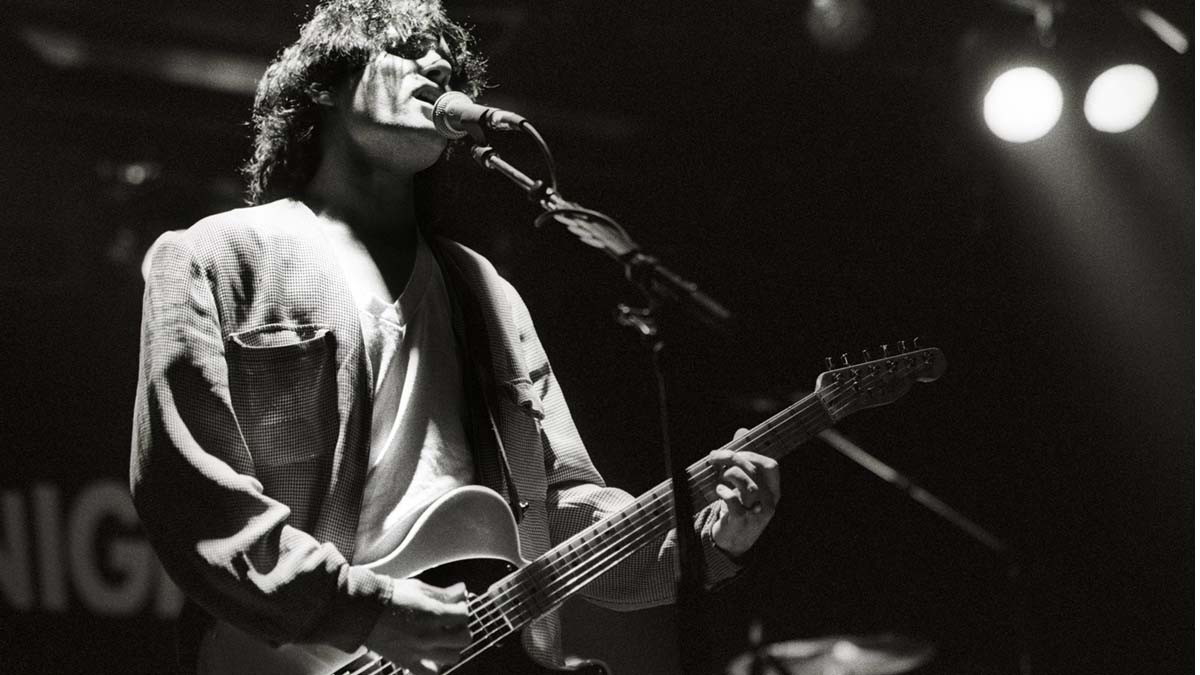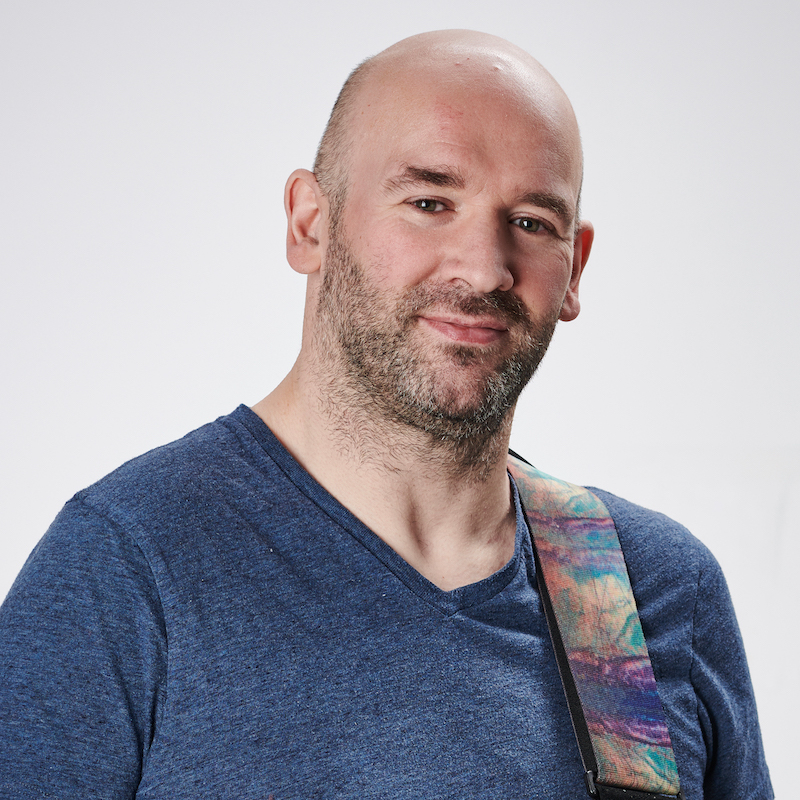Jeff Buckley is an unsung guitar hero whose genius defies categorization
Total Guitar editor Chris Bird reflects on why the iconic singer-songwriter doesn't quite fit into any 'greatest guitarist' list

During the making of Total Guitar's mammoth list of the 100 greatest guitarists of all time, we began to consider the guitarists who hadn’t made our top 100. Had the polls delivered a representative spectrum of guitarists? Had we forgotten anyone vital?
You see, making a longlist of guitarists is easy; cutting them back to 100 is the real challenge, and many of our favourite players had to fall by the wayside. For me, it was Jeff Buckley, and for one key reason.
A guitarist who will be evaluated on just one official album – 1994’s Grace – and a raft of posthumously released live recordings, demos and cover versions, Buckley’s musical style resolutely defies categorisation – an amazing player, without doubt, but his highly individual style just wouldn’t fit within the categories of a 'greatest guitarists' list.
A glance at his Wikipedia page tells you that Jeff played “alternative rock, folk-rock, soul, blues, reggae and jazz”, but that’s really only half the story.
Listen to those live releases and you’ll hear elements of traditional choral music and Indian devotional music, as well as countless cover versions and homages to Jeff ’s heroes, Edith Piaf, Nusrat Fateh Ali Khan, Bob Dylan, Nina Simone, The Smiths and, frankly, quite a lot more, too.
As I say, he’s hard to classify. Jeff ’s transcendent four-octave-range tenor voice and effortless falsetto forges a direct connection to the listener’s heart, and, of course Grace is almost entirely devoid of conventional guitar solos.
Jeff was very into the unresolved aspect of chord progressions, and the cyclical aspect of certain chord progressions, and that’s definitely influenced me
Michael Tighe
This makes Buckley an unlikely guitar hero, then, but those complex arrangements and beautiful harmonies aren’t lacking melodic guitar – it’s just that the magic is in Buckley’s rich chordal work: the diminished intervals that open the supposedly easy-to-play Hallelujah; the jazz chords outlining the Lover, You Should’ve Come Over lyric; the cycling arpeggios in Dream Brother.
All the latest guitar news, interviews, lessons, reviews, deals and more, direct to your inbox!
Then there’s the album’s title track, which kicks off with rapid-fire arpeggios before the verse takes you through a run of dissonant polychords (Em, Em/F5 and Em/E b5 if you want to know!). Jeff ’s skill was making these unusual elements sound ‘normal’ – as though a basic understanding of open and barre chords might be enough to see you through these tracks. There is, of course, rather more to it.
As Jeff ’s bandmate, guitarist Michael Tighe related to MusicRadar in 2019: “[Jeff ] taught me so much. He really taught me about clusters; he always tried to augment the chords to a degree, or leave certain notes out to make it sound a bit more hollow or unresolved. He was very into the unresolved aspect of chord progressions, and the cyclical aspect of certain chord progressions, and that’s definitely influenced me.”
So what’s the magic ingredient, the secret sauce that elevates Buckley’s playing? Well, it’s all in the delivery.
Jeff ’s un-showy playing style might not scream ‘guitar hero’, but he delivered every note on Grace just as he delivered his otherworldly vocals – with the freedom of spirit of a natural improviser, guitaristically and compositionally. For me, he’s high in my Top 100.
Chris was Editor of Total Guitar magazine from 2020 until its closure in 2024, when he became Lesson Editor for Guitar World, MusicRadar and Guitar Player. Prior to taking over as Editor, he helmed Total Guitar's world-class tab and tuition section for 12 years, helping thousands of guitarists learn how to play the instrument. A former guitar teacher, Chris trained at the Academy of Contemporary Music (ACM) in Guildford, UK, and held a degree in Philosophy & Popular Music. During his career, Chris interviewed guitar legends including Brian May and Jimmy Page, while championing new artists such as Yungblud and Nova Twins. Chris was diagnosed with Stage 4 cancer in April 2024 and died in May 2025.



